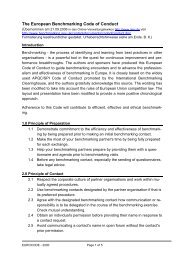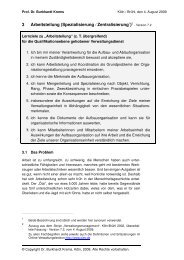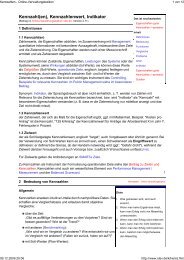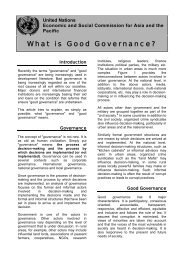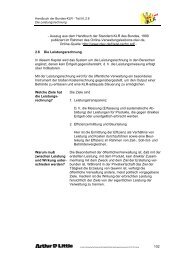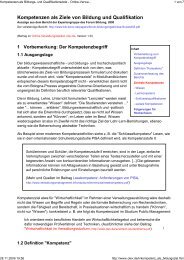Strategy Survival Guide
Strategy Survival Guide
Strategy Survival Guide
Create successful ePaper yourself
Turn your PDF publications into a flip-book with our unique Google optimized e-Paper software.
<strong>Strategy</strong> <strong>Survival</strong> <strong>Guide</strong> Version 2.1<br />
Prime Minister’s <strong>Strategy</strong> Unit<br />
home | strategy development | strategy skills | site index<br />
<strong>Strategy</strong> Development > Justification & Set Up<br />
Phase<br />
Tasks<br />
Output<br />
Justification<br />
& Set Up<br />
• Justifying<br />
the project<br />
• Clarifying<br />
the issues<br />
• Planing the<br />
project<br />
• Setting up<br />
the team<br />
Project<br />
proposal &<br />
plan<br />
> typical management<br />
issues in this phase<br />
> key questions to ask<br />
in this phase<br />
As the need for fresh strategic thinking starts to emerge, it is important to<br />
bring clarity to the scope, rationale and approach for the proposed work.<br />
At this early stage it is important to:<br />
• demonstrate the need for the project<br />
• identify and structure the issues that need to be addressed<br />
• plan how the project will be structured<br />
• pull together an appropriate team.<br />
Justifying the need for the project is key to securing buy-in from stakeholders<br />
and generating momentum behind the need to challenge conventional<br />
thinking. This will require a close examination of the issues in order to define<br />
and agree the scope of the project. It is also helpful at this stage to identify a<br />
Minister or senior official that can act as the project’s sponsor.<br />
Clarifying the issues to be addressed will also help to highlight logical<br />
workstreams for the project and hence necessary roles and responsibilities<br />
within the team. This should be documented in a project plan along with a<br />
commitment to particular outputs and milestones, an assessment of risks to<br />
the project’s successful completion, and a description of the proposed<br />
project governance structure. Even at this early stage the project plan should<br />
be accompanied by a plan for stakeholder engagement and a<br />
communications strategy.<br />
Throughout this phase it will become increasingly clear what kind of project<br />
team will be needed. By the end of the phase a team should be in place that<br />
is large enough to handle the expected workload, has all the necessary skills<br />
and experience and is acceptable to all the key stakeholders.<br />
It can take a significant amount of time to clarify and agree the issues to be<br />
addressed with stakeholders, to agree the project budget and to recruit the<br />
right team. As a result this phase can often take longer than initially<br />
expected. It is however a crucial foundation for the rest of the project and<br />
plenty of time should be allowed for it.<br />
Skills relevant to this phase include:<br />
> structuring the thinking<br />
> managing people and the project<br />
> managing stakeholders and communications<br />
<strong>Strategy</strong> <strong>Survival</strong> <strong>Guide</strong> – <strong>Strategy</strong> Development<br />
Page 14



